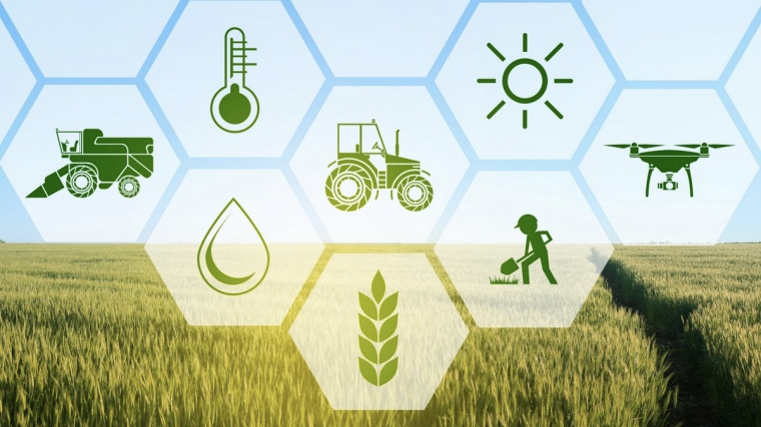
Household Insecticides Market Growth Size Analysis 2022-2029
Global Household Insecticides Market is segmented By Type (Mosquito Fly Control, Rodent Control, Termite Control, Bedbugs & Beetle Control, Others), By Form (Electric Vaporizer, Liquid, Powder, Granules & Baits, Spray, Gel, Mat, Others), By Composition (Natural, Synthetic), By Distribution Channel (Supermarkets & Hypermarkets, General Stores & Convenience Stores, Drug Store, Online Sales), By Region (North America, South America, Europe, Asia Pacific, Middle East, and Africa) – Share, Size, Outlook, and Opportunity Analysis, 2022-2029
2021-03-04
Mosquito-borne diseases are cited among the world's leading causes of death and illness. The World Health Organization predicts that more than 300 million clinical cases are attributable to mosquito-borne diseases each year. Despite great strides over the last five decades, mosquito-borne illnesses continue to posture significant risks to a significant share of the population across the globe. WHO promotes the strategic approach known as Integrated Vector Management (IVM) to control mosquito vectors, including those of dengue. A regional partnership between WHO, the European Mosquito Control Association (EMCA) and the European Centre for Disease Prevention and Control (ECDC), with the involvement of the VBORNET network of medical entomologists and public health experts, has been set up to increase awareness and understanding about this growing threat and to assist countries in early detection and a prompt response. EPA ensures that state and local mosquito control departments have access to effective mosquito control tools that they can use without posing unreasonable risk to human health and the environment. The EPA in cooperation with FDA and USFDA is the major factor for production and use of pesticide majorly in the U.S. State and local government agencies play a critical role in protecting public health from mosquito-borne diseases. They serve on the front line, providing information through their outreach programs to the medical and environmental surveillance networks that first identify possible outbreaks. They also manage the mosquito control programs that carry out prevention, public education and vector population management.
Industry Factors on HouseHold Insecticides
Regulatory Analysis
Global household insecticides market is highly regulated. Household insecticides products are generally marketed in ready-to-use packages and labels containing the requirements for compliance with specifications of the product. Clauses on its safe and efficient use should also be included on the product. The specifications for certain household insecticides are based on standards initiated by national or international organizations such as Chemical Specialties Manufacturing Association (CSMA) in the United States, the British Aerosol Manufacturing Association/ British Standards Institute (BAMA/BSI) in the United Kingdom, the Committee for European Normalization (CEN) and the European Aerosol Federation in Europe. Before they can be marketed, most skin-applied repellents must be registered by EPA. EPA registration of skin-applied repellent products indicates that they have been evaluated and approved for human safety and effectiveness when applied according to instructions on the label. The Centers for Disease Control and Prevention (CDC) recommends the use of products containing EPA-registered active ingredients. Some insect repellent products for sale in the United States do not currently require EPA registration. WHO Pesticides Evaluation Scheme (WHOPES) is a program for implementation of the guidelines to household insecticides products in current use, and prepare and publish specifications on such products. The Insecticides Act, 1968 and Insecticides Rules, 1971 regulate the import, registration process, manufacture, sale, transport, distribution and use of insecticides (pesticides) with a view to prevent risk to human beings or animals and for all connected matters, throughout India. All insecticides (pesticides) have to necessarily undergo the registration process with the Central Insecticides Board & Registration Committee (CIB & RC) before they can be made available for use or sale. Thus, technically all insecticides (pesticides) in India are those substances that are listed on the “Schedule” of the Insecticides Act, 1968. The Registration Certificate mandates that a label be put on the packaging, which clearly indicates the nature of the insecticide (Agricultural or Household use), composition, active ingredient, target pest(s), recommended dosage, caution sign and safety precautions. Therefore, a pesticide labeled for agriculture should not be used in a household.
About Us:
DataM Intelligence was incorporated in the early weeks of 2017 as a Market Research and Consulting firm with just two people on board. Within a span of less than a year, we have secured more than 100 unique customers from established organizations all over the world.
For more information:
Sai Kiran
Sales Manager at DataM Intelligence
Email: [email protected]
Tel: +1 877 441 4866
Website: www.datamintelligence.com
Found it interesting?
Sai Kiran
Sales Manager at DataM Intelligence
Email: [email protected]
Tel: +1 877 441 4866
We have 5000+ marketing reports and serve across 130+ countries
#household insecticides market , #household insecticides market size, #household insecticides market share, #household insecticides market trends, #household insecticides market value, #household insecticides market growth, #household insecticides market demand, #household insecticides market industry forecast, #household insecticides market outlook, #household insecticides market analysis, #household insecticides market applications, #household insecticides market companies, #covid-19, #datamintelligence
